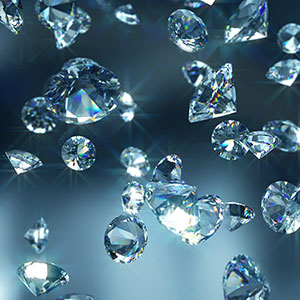U.K. Lab-Grown Diamond Ruling Shows Why Words Matter
By Rob Bates | April 19, 2024

"Last week, the U.K.’s Advertising Standards Agency (ASA), in response to a complaint from the Natural Diamond Council (NDC), ruled that U.K. lab-grown diamond brand Skydiamond must change the language in its advertising, which has described its products as “mined from the sky.”
“None of its ads included an explicit qualification that Skydiamonds were synthetic, laboratory-created, or similar,” the ASA said in its ruling. “Consumers could go through the entire process of buying a Skydiamond, from homepage to completion of the purchase, without any explicit mention that the diamond was synthetic.”
Skydiamond has said it will appeal, posting on LinkedIn: “The complaint from the NDC (and no one else) claims we were not clear enough that our beautiful stones were man-made and customers could be deceived into thinking we were dug from the earth not made from the sky. Apparently, our very name is not clear enough.…
“Not all lab diamonds are created equally!… There is a spectrum of how these are created, from mass production using cheap power and commercial gas, to bespoke batches created from renewable energy, to ours, uniquely produced right here in Britain using only four ingredients form the sky.”
Even if one agrees that Skydiamonds aren’t the same as other lab-grown diamonds, they are produced using chemical vapor deposition—which is the method that creates other lab diamonds. The ingredients may be different, but there’s no reason Skydiamonds shouldn’t be called “lab-grown.”
And while the company asserted in the LinkedIn post that its name is “clear enough,” it said in its submission to the ASA that such phrases as “mined from the sky” and “world’s rarest” were “obvious exaggerations or puffery, especially in the context of the ads and/or the qualifying information. They would not be taken literally by an average consumer and did not materially mislead.”
It’s certainly possible that consumers may believe that Skydiamond’s gems literally came from the sky. After all, diamonds have been found in meteorites and on other planets. And space mining is a real thing.
(One other comment: Skydiamond’s introductory email to consumers notes that “our diamonds are carbon-negative by design, making them the cleanest diamonds on planet Earth, as validated by Imperial College London.” Skydiamond hired Imperial College to study its diamonds’ impact. The ASA’s guidelines say such “commercial relationships must be disclosed up front.”)
This British case is just one example of how the industry is still squabbling over lab-grown nomenclature, six years after the lab-grown boom began in earnest. Recently, I received an angry email from the CEO of a lab-grown company about my use of the word “synthetics” in the fifth paragraph of this story. This person claimed the Federal Trade Commission (FTC) prohibited the word’s use, which it expressly did not; the FTC even used the word “synthetic” in a 2021 blog post.
I’ve received other complaints over my use of “lab-grown,” with some natural diamond partisans arguing that “factory-grown” or “man-made” would be more appropriate. “Man-made” is a decent descriptor, one the FTC has itself used. But it’s not gender-neutral, and technically the stones are machine-made. I agree “factory-grown” is probably more accurate than “lab-grown,” but the latter term has now been used for years. It’s government-approved, and well-known enough that its use has spread to products like meat and plants. (There’s even talk of “lab-grown babies.”) I think it’s fine.
The bigger problem here is that no one has come up with a truly great term for lab-grown diamonds. (On our podcast, Tom Chatham recalled that his father, Carroll, hired a linguist to come up with the right words for his gems. Eventually a judge okayed “Chatham-created.”)
Remember, the government’s rules don’t just protect the natural diamond industry (and consumers), they protect everyone. For years, many simulant sellers have called their products “lab-grown diamonds,” which they are not. The only thing now preventing more companies from doing so is the threat of government intervention.
Earlier this year, France decreed that only “synthetic” can be used to described lab-growns, which I find ... "
https://www.jckonline.com/editorial-art ... nd-ruling/